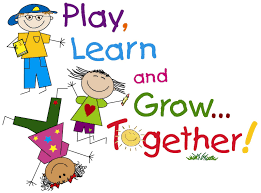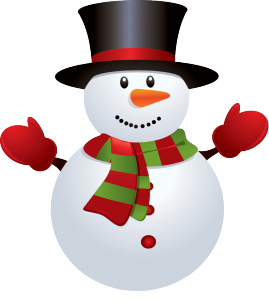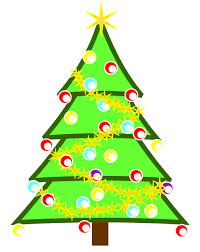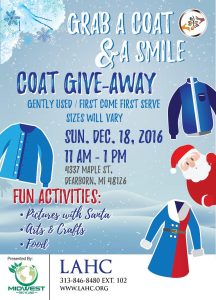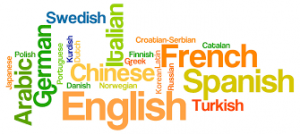 Dear Teachers:
Please distribute the Leukemia & Lymphoma Society fundraiser boxes along with a take home letter on Monday January 30th.
Student Council Members will finish delivering letters & boxes tomorrow.
We sincerely appreciate your support in making this school wide fundraiser a memorable one.
Please encourage your students to bring in loose change to deposit into your classroom fundraiser white box.
The classroom that raises the most
Thank you so much for your support
Nancy Haddad
|
Pizza for Snack Day

PIZZA! PIZZA! PIZZA!
Attention Parents,
On Friday, January 27th, we will have a “Pizza for Snack Day!” fundraiser.
If your child would like to have pizza for snack on that day they can bring money to school to pre-order Monday through Thursday, January 26th.
Pizza will be delivered at 10:15 because it is a half day J
THANKS FOR SUPPORTING THE PTA!!
From the desk of the Kindergarten Teachers:
Leave a commentFrom the desk of the Kindergarten Teachers:
How to build your child’s language skills in Kindergarten…
Children build vocabulary and oral language skills doing many of the things they love to do: drawing, playing with dolls and stuffed animals, playing with cars, building with blocks, dressing up, and playing pretend in a kitchen or home center. The language and conversation kids use during these play times provide a strong literacy base for a child entering kindergarten. The type of dialog that children use while playing in a home center will be very different from the language they use while building with blocks, so having a variety of activities for your child to choose from will encourage a broad range of vocabulary words incorporated into their daily play. As you are playing with your child, or observing their play, use language and vocabulary that will help them grow. Identify and explain the uses for different objects in the kitchen and use interesting language when playing with stuffed animals and dolls. Young children are like sponges, ready to soak up the language around them!
Spending time engaged in conversation during your shared experiences will also help build vocabulary and oral language. Taking walks, going for bike rides, heading to the park, flying a kite, cooking together, visiting a farm or petting zoo, and even raising pets at home can all be terrific experiences for kids and give you lots to talk about. Be sure to talk to your child throughout these day-to-day experiences, using language that helps them grow in their vocabulary development. Too often parents, teachers, and caregivers will use simple words with kids. While it’s important to explain things to your child, using words within their developmental level, it’s also important to remember that kids can handle a lot more than we give them credit for. When you’re cooking with your child, ask them to get the measuring cup instead of calling it a scooper. They may have never heard that term before, but suddenly it becomes part of their vocabulary. Let’s continue to make literacy our #1 priority as language is the foundation to educational success!!!
Free Parent Workshops
Leave a commentHoliday Coloring Book Exchange
Leave a commentHoliday Coloring Book Exchange
In our classroom this holiday season, we will be doing a class “coloring book” exchange. Each student can bring in a new coloring book wrapped in their favorite holiday wrapping (with a tag to indicate who it is from only) to exchange with another student. It should be WRAPPED. Please do not write any of the student’s names from the classroom on it only your child’s name.
Send in the wrapped coloring book by Wednesday, December 21st. We will also be having a pizza/cookie decoration celebration on Friday, December 23rd!!! Please donate $3 for the pizza, drink, and cookies!!! Thank you! A Holiday Winter Homework Packet will also be sent home with your child for the 2 week vacation.
As always, thank you so much for your support,
Ms. Wentland & Happy Holidays
Holiday Store
Leave a commentGood morning,
Winter Recess
Leave a comment- Our winter (or fall) is beginning to look and feel more like winter!I wanted to give you some information about winter recess clothing (especially since many children in Room 148 have been wishing hard for snow).
- When we go outside for recess, there is not always an adult left in our classroom to be with those children who may not have the proper clothing for recess. Therefore, everyone goes outside for recess.
- It is very important your child be dressed appropriately for the weather.The playground is very open, so a hat, scarf and gloves or mittens are recommended. If there is snow on the ground, your child will need boots in order to be in the snow. These boots must be in addition to another pair of shoes.
- Wearing wet, snowy boots throughout our classroom makes for a damp carpet and slippery floors, as well as wet clothing when we are sitting on the carpet—not to mention cold, wet feet!
- If your child would like to roll around and really get into the snow, snow pants are a must. Since the snow clothes will get quite wet, we often do not wear them home, but pack them up. It would be great if your child brought their snow gear in a separate bag (a plastic grocery bag works great).
- If we end the day with recess, snow clothes will be worn home. In the past, when we have had consistent snow, children have brought spare snow clothing to school and left them on their hook.
- It is best to always have your child prepared to be outside regardless of the forecast because sometimes that forecast changes.


Pajama day $1
Leave a commentGrab a Coat and a :)
Leave a commentFrom the desk of the Kindergarten Teachers:
Leave a commentFrom the desk of the Kindergarten Teachers:
How to build your child’s language skills in Kindergarten…
Children build vocabulary and oral language skills doing many of the things they love to do: drawing, playing with dolls and stuffed animals, playing with cars, building with blocks, dressing up, and playing pretend in a kitchen or home center. The language and conversation kids use during these play times provide a strong literacy base for a child entering kindergarten. The type of dialog that children use while playing in a home center will be very different from the language they use while building with blocks, so having a variety of activities for your child to choose from will encourage a broad range of vocabulary words incorporated into their daily play. As you are playing with your child, or observing their play, use language and vocabulary that will help them grow. Identify and explain the uses for different objects in the kitchen and use interesting language when playing with stuffed animals and dolls. Young children are like sponges, ready to soak up the language around them!
Spending time engaged in conversation during your shared experiences will also help build vocabulary and oral language. Taking walks, going for bike rides, heading to the park, flying a kite, cooking together, visiting a farm or petting zoo, and even raising pets at home can all be terrific experiences for kids and give you lots to talk about. Be sure to talk to your child throughout these day-to-day experiences, using language that helps them grow in their vocabulary development. Too often parents, teachers, and caregivers will use simple words with kids. While it’s important to explain things to your child, using words within their developmental level, it’s also important to remember that kids can handle a lot more than we give them credit for. When you’re cooking with your child, ask them to get the measuring cup instead of calling it a scooper. They may have never heard that term before, but suddenly it becomes part of their vocabulary. Let’s continue to make literacy our #1 priority as language is the foundation to educational success!!!

